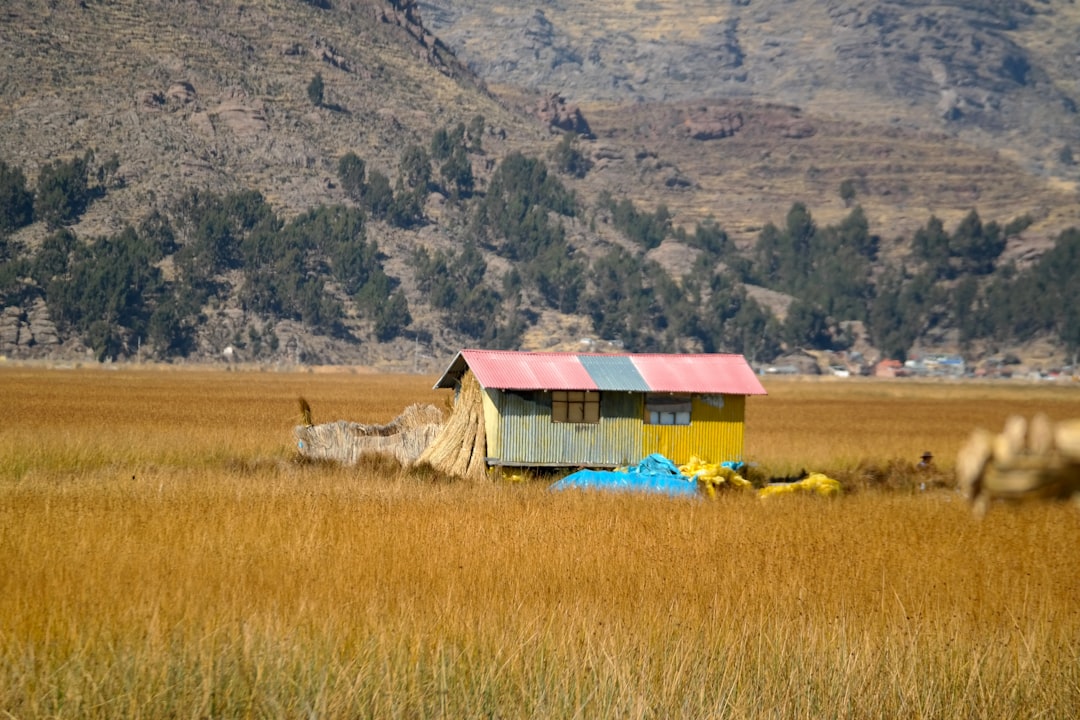Kickstart Your Nomad Adventure With Proven Strategies

Introduction
The idea of living a location‑independent life has moved from a fringe fantasy to a mainstream possibility. With reliable internet, affordable travel options, and a growing community of digital nomads, more people than ever are asking themselves: how do I actually start? This guide pulls together the most effective strategies that seasoned nomads have used to transition smoothly, stay productive, and enjoy the adventure from day one. Whether you are planning a few weeks of travel, a year of remote work, or a lifelong nomadic career, the steps below will give you a solid foundation.
Mindset Foundations
Embrace Flexibility
Nomad life is built on change. The ability to adapt to new cultures, time zones, and unexpected hurdles is the single most valuable skill you can develop. Treat every obstacle as a data point rather than a failure. When you shift your perspective from “this is a problem” to “this is information I can use,” you keep momentum and reduce stress.
Define Your Why
Before you book a ticket, write down the core reasons you want to become a nomad. Are you seeking creative inspiration, financial freedom, personal growth, or a blend of these? A clear purpose acts as a compass when decisions become overwhelming. Revisit this list regularly; it will help you stay aligned with your long‑term vision.
Set Realistic Expectations
The romantic image of working from a beach cafe while the sun sets is appealing, but reality includes mundane tasks like paperwork, visa renewals, and occasional loneliness. Accept that the lifestyle will have peaks and valleys. By anticipating both the highs and the lows, you reduce disappointment and can plan for sustainable success.
Financial Blueprint
Calculate Your Baseline
Start by tracking every expense for at least one month in your current lifestyle. Include rent, utilities, groceries, transportation, entertainment, and any recurring subscriptions. This baseline will reveal which costs can be trimmed or relocated.
Build a Safety Net
Nomad life often means income irregularities, especially if you are freelancing or running a small business. Aim to have at least three to six months of living expenses saved in an easily accessible account. This buffer protects you during lean periods and gives you confidence to take calculated risks.
Diversify Income Streams
Relying on a single client or source of revenue can be risky when you are constantly moving. Consider the following strategies to spread risk:
- Remote full‑time employment with a company that supports location independence
- Freelance contracts in your core skill set (writing, design, development, consulting)
- Passive income from digital products, affiliate marketing, or online courses
- Short‑term gigs that can be done locally (teaching English, tour guiding, photography)
Having multiple income streams reduces the impact of any single loss and provides flexibility when choosing destinations with different cost structures.
Choose a Cost‑Effective Currency
If you earn in a strong currency (USD, EUR, GBP) and travel to regions where the local currency is weaker, you gain significant purchasing power. Use a multi‑currency account or a debit card with low foreign‑exchange fees to maximize this advantage. Avoid frequent currency conversions; instead, convert larger sums when rates are favorable.
Budget for Nomad Essentials
Create a monthly budget that reflects your nomadic lifestyle. Typical categories include:
- Accommodation (short‑term rentals, co‑living spaces, hostels)
- Internet and mobile data
- Transportation (flights, trains, local transit)
- Insurance (health, travel, equipment)
- Workspace (coworking memberships, coffee shop spend)
- Visas and permits
- Miscellaneous (activities, meals out, emergency fund)
Track this budget using a simple spreadsheet or budgeting app. Adjust as you gather real‑world data from each destination.
Legal and Administrative Essentials
Health Insurance
A comprehensive travel health insurance plan is non‑negotiable. Look for policies that cover:
- Out‑patient and inpatient care
- Prescription medication
- Emergency evacuation
- COVID‑19 related treatment
- Pre‑existing condition clauses (if applicable)
Popular providers for digital nomads include SafetyWing, World Nomads, and Cigna Global. Compare coverage limits, deductibles, and claim processes before committing.
Visa Planning
Research visa requirements well in advance. Many countries now offer digital nomad visas that allow stays of six months to a year for remote workers. Keep a spreadsheet with the following columns:
- Country
- Visa type
- Duration allowed
- Application fee
- Required documentation
- Application deadline
Set reminders for renewal dates and gather required documents (proof of income, health insurance, background check) early to avoid last‑minute stress.
Tax Considerations
Your tax obligations depend on citizenship, residency, and where you earn income. General steps:
- Determine your tax residency status. Some countries use the “183‑day rule” while others consider the “center of vital interests.”
- Keep meticulous records of income, expenses, and travel dates.
- If you are a US citizen, remember that you must file annually regardless of where you live. Explore the Foreign Earned Income Exclusion (FEIE) and Foreign Tax Credit (FTC) options.
- Consult a tax professional experienced with expatriate or nomadic clients to ensure compliance.
Digital Identity and Security
- Use a password manager (e.g., Bitwarden, LastPass) to store strong, unique passwords.
- Enable two‑factor authentication (2FA) on all critical accounts.
- Install a reputable VPN on all devices to protect data on public Wi‑Fi.
- Keep a backup of important documents (passport scan, insurance card, visas) in an encrypted cloud storage service.
Choosing Your First Destination
Evaluate Cost of Living
Tools like Numbeo, Expatistan, and Nomad List provide average costs for rent, food, and transportation. Compare these figures to your budget to shortlist affordable locations.
Internet Reliability
Remote work hinges on stable internet. Look for destinations with:
- High‑speed broadband (minimum 25 Mbps download)
- Multiple coworking spaces
- Positive reviews from other nomads about connectivity
Check local forums, recent traveler blogs, and community groups for up‑to‑date information.
Community Presence
A supportive community can accelerate your adjustment. Prioritize cities with active digital nomad meetups, coworking hubs, or Facebook groups. Engaging with locals early on reduces isolation and opens doors to collaborations.
Climate and Lifestyle Preferences
Your personal comfort matters. Consider:
- Seasonal weather patterns (avoid extreme heat if you prefer cooler climates)
- Outdoor activities you enjoy (hiking, surfing, cultural festivals)
- Language barriers (choose a place where you can communicate in a language you know or are eager to learn)
Safety and Political Stability
Consult travel advisories from reputable sources (government websites, International SOS). Avoid regions with high crime rates or volatile political situations, especially if you will be traveling alone.
Accommodation Strategies
Short‑Term Rentals
Platforms like Airbnb, Vrbo, and Booking.com offer flexible stays from a few days to several months. Look for listings with:
- Dedicated workspace or a quiet area
- High‑speed internet included in the price
- Flexible cancellation policies
Negotiate directly with hosts for longer stays; many are willing to lower rates for month‑long bookings.
Co‑Living Spaces
Co‑living combines accommodation with a built‑in community of like‑minded travelers. Companies such as Outsite, Selina, and Roam provide fully furnished apartments, shared workspaces, and social events. These environments are ideal for first‑time nomads seeking support.
Hostels with Private Rooms
If you are on a tight budget, many hostels now offer private rooms with en‑suite bathrooms. Look for hostels that provide reliable Wi‑Fi and a quiet environment for work.
House‑Sitting and Home‑Exchange
Platforms like TrustedHousesitters and HomeExchange let you stay for free in exchange for looking after a property or pet. This can dramatically reduce accommodation costs, but requires careful vetting and flexibility with dates.
Negotiating Long‑Term Rates
When you decide to stay longer than a month, reach out to the property manager directly. Explain that you are a remote worker and ask about discounted monthly rates. Many owners prefer steady occupancy over frequent turnover and will accommodate reasonable requests.
Productivity on the Road
Create a Routine
Even when you move between time zones, a consistent daily routine anchors productivity. Include:
- A set wake‑up time
- A dedicated work block (e.g., 9 am–1 pm)
- Regular breaks for movement or meals
- An evening wind‑down period
Stick to this routine as closely as possible, adjusting only for local customs or daylight hours.
Choose the Right Workspace
Identify three types of work environments:
- Quiet coffee shop with reliable Wi‑Fi
- Coworking space with private rooms
- Home office or rental with a dedicated desk
Rotate between these based on the task at hand. For deep work, prefer a quiet space; for networking, opt for coworking.
Time‑Zone Management
When collaborating with clients or teammates across multiple time zones, use a shared calendar tool (Google Calendar, Calendly) that displays each participant’s local time. Schedule core overlap hours where everyone is available, and communicate any deviations well in advance.
Task Management Systems
Adopt a digital task manager (Todoist, Notion, Trello) to keep track of daily, weekly, and monthly goals. Break projects into bite‑size tasks and assign deadlines. Review and prioritize each morning to stay focused.
Avoid Burnout
Nomad life can blur the line between work and leisure. Set clear boundaries:
- Turn off work notifications after a designated hour
- Use “Do Not Disturb” mode on devices during personal time
- Schedule at least one day per week with no work obligations
Regular physical activity, meditation, and adequate sleep are essential for sustained performance.
Health and Well‑Being
Stay Active
Incorporate movement into your routine:
- Use hotel gyms or local fitness centers
- Join group classes (yoga, pilates, martial arts) offered in the community
- Explore the city on foot or by bike
Physical activity not only keeps you healthy but also helps you discover new neighborhoods.
Nutrition on the Move
Eating well while traveling can be challenging. Tips:
- Shop at local markets for fresh produce and cook simple meals
- Choose restaurants with healthy options; avoid relying solely on fast food
- Keep portable snacks (nuts, dried fruit, protein bars) for days when you are on the go
Hydration is critical, especially in hot climates. Carry a reusable water bottle and refill regularly.
Mental Health Support
Isolation can affect mental health. Strategies:
- Join local meetups or language exchange groups to build social connections
- Keep in touch with friends and family through scheduled video calls
- Use mental health apps (Headspace, Calm) for guided meditation
- If needed, seek remote therapy services (BetterHelp, Talkspace)
Preventative Care
Schedule a basic health check‑up before you leave. Carry a small medical kit with essentials (pain relievers, band-aids, antiseptic wipes, any prescription meds). Know the location of the nearest hospital or clinic in each destination.
Building a Community
Attend Meetups and Events
Websites like Meetup.com and Eventbrite list gatherings for digital nomads, expats, and tech professionals. Attend regularly to:
- Exchange tips on visas, accommodation, and local services
- Find potential collaborators or clients
- Gain social support
Participate in Coworking Spaces
Coworking memberships provide more than just a desk. They often host workshops, speaker series, and social events. Engaging with members can lead to long‑term friendships and professional opportunities.
Contribute to Online Communities
Active participation in forums such as Reddit’s r/digitalnomad, Facebook groups, and Discord servers enhances visibility. Share your experiences, answer questions, and post updates. This reciprocity builds a reputation as a helpful community member.
Host Your Own Gatherings
If you notice a lack of events in a city, consider organizing a small meetup. Even a casual coffee gathering can attract other nomads and position you as a connector.
Managing Logistics
Mail and Packages
Use a mail forwarding service (e.g., MyUS, Shipito) to receive physical mail and parcels. They scan incoming letters and can forward packages to your current location. This solves the problem of missing important documents while on the move.
Banking and Payments
Open an account with an online bank that offers low fees for international transactions (e.g., Wise, Revolut). Link this account to your payment platforms (PayPal, Stripe) to receive client payments with minimal conversion costs.
Device Setup
Keep your tech gear lightweight and versatile:
- Laptop with a reliable SSD and extended battery life
- Smartphone with a global SIM or eSIM capability
- Portable power bank (minimum 20,000 mAh)
- Universal travel adapters
- Noise‑cancelling headphones for focus in noisy environments
Back up all data regularly to a cloud service (Google Drive, Dropbox) and an external hard drive.
Travel Planning Tools
Utilize apps to streamline travel logistics:
- Skyscanner or Google Flights for cheap airfare alerts
- Rome2rio for multi‑modal transportation routes
- Airbnb or Booking.com for accommodation research
- TripIt for consolidating itineraries
Set up automated flight price alerts and consider flexible dates to capture the best deals.
Sustainable Nomadism
Reduce Environmental Impact
Traveling frequently contributes to carbon emissions. Mitigate by:
- Choosing trains or buses over short‑haul flights when possible
- Offsetting flight emissions through reputable programs (Gold Standard, ClimateCare)
- Using reusable items (water bottle, coffee cup, shopping bag)
Support Local Economies
Spend money at locally owned businesses rather than multinational chains. Hire local guides, purchase crafts directly from artisans, and dine at neighborhood eateries. This creates a positive impact on the community you visit.
Cultural Sensitivity
Learn basic phrases in the local language, respect customs, and dress appropriately. Observe local etiquette regarding greetings, tipping, and public behavior. Being a considerate traveler fosters goodwill and enriches your experience.
Scaling the Nomad Lifestyle
Transition to Full‑Time Remote Work
If you are currently employed part‑time or freelance, aim to secure a full‑time remote position that offers benefits (health, retirement). Companies increasingly value remote talent, and a stable salary simplifies budgeting.
Launch a Location‑Independent Business
Consider building a product or service that can be delivered online:
- SaaS tools
- Online courses or coaching programs
- E‑commerce store with drop‑shipping or print‑on‑demand
- Membership sites
Invest time in validating the idea before committing fully. Use lean startup principles to test demand with minimal upfront cost.
Automate and Outsource
As your income grows, delegate repetitive tasks to virtual assistants or automation tools (Zapier, Integromat). This frees up time for travel, creative work, and personal development.
Create a Home Base
Even lifelong nomads benefit from a “home base” where they store belongings, receive mail, and reset. Options include:
- A small apartment in a low‑cost city (e.g., Lisbon, Medellín) that you keep long‑term
- A storage unit for gear you do not travel with
- A family member’s address for legal and tax purposes
Rotate between this base and new locations as needed.
Common Challenges and How to Overcome Them
Loneliness
- Schedule regular video calls with friends and family.
- Join local clubs (sports, language, cooking) to meet residents.
- Use platforms like Couchsurfing to find community events.
Internet Outages
- Have a backup mobile hotspot with a local SIM.
- Identify nearby coworking spaces in advance.
- Download necessary files for offline work.
Visa Expiration
- Keep a digital calendar with visa start and end dates.
- Set reminders two months before expiry.
- Research neighboring countries where you can move quickly while awaiting a new visa.
Financial Instability
- Maintain a diversified client portfolio.
- Offer retainer agreements for steady cash flow.
- Keep a “rainy‑day” fund separate from your emergency savings.
Time‑Zone Fatigue
- Block “focus days” where you work during your natural peak hours, even if it means communicating asynchronously.
- Use tools like Slack’s timezone features to set appropriate working hours for teammates.
Resources and Tools Summary
| Category | Tools & Platforms |
|---|---|
| Accommodation | Airbnb, Vrbo, Booking.com, Outsite, Selina, Hostels.com |
| Flights | Skyscanner, Google Flights, Kayak |
| Transportation | Rome2rio, local train apps, Uber, Lyft |
| Coworking | Croissant, Deskpass, WeWork, local coworking directories |
| Finance | Wise, Revolut, TransferWise, PayPal, Stripe |
| Insurance | SafetyWing, World Nomads, Cigna Global |
| Task Management | Notion, Todoist, Trello, Asana |
| Communication | Slack, Zoom, Microsoft Teams |
| VPN | NordVPN, ExpressVPN, ProtonVPN |
| Community | Reddit r/digitalnomad, Nomad List, Facebook groups, Meetup |
| Health | Headspace, Calm, BetterHelp, Talkspace |
| Mail Forwarding | MyUS, Shipito, PostScan Mail |
Final Thoughts
Embarking on a nomadic adventure is both thrilling and demanding. By laying a solid financial foundation, mastering the logistics of visas and insurance, selecting the right first destination, and cultivating a resilient mindset, you set yourself up for sustainable success. Remember that the journey is a series of experiments—each city, each client, each routine teaches you something valuable. Embrace the learning process, stay adaptable, and keep your purpose at the forefront. With these proven strategies, you are ready to kickstart a nomad life that not only fulfills your wanderlust but also supports a thriving professional career. Safe travels and happy working!
Random Posts

From Solo Travel to Shared Events The Power of Nomad Communities
Discover how digital nomads turn solo trips into vibrant community experiences, using meet ups and coworking events to boost freedom, learning, and professional growth.
2 months ago

Explore Latin America’s Best Digital Nomad Cities
Discover Latin America’s top digital nomad cities, where fast internet, affordable living, vibrant culture and thriving coworking scenes combine to boost productivity and adventure for freelancers, founders and remote teams.
2 months ago

Top Global Hubs for Digital Nomads with Smart Flight Strategies
Discover the worlds top digital-nomad hubs and learn cheap, flexible flight hacks to get you there so you can work from vibrant cities without draining your budget.
2 months ago

Ultimate Guide to Finance, Taxes and Travel Insurance for the Modern Nomad
Discover how modern nomads can master banking, taxes and travel insurance with simple online tools, multi currency accounts, tax residency tricks and affordable coverage, so you can work anywhere with financial confidence
2 months ago

Affordable European Bases for Digital Freelancers
Discover budget-friendly European cities where freelancers can enjoy fast internet, vibrant coworking spaces, easy visa options and a high quality of life, perfect bases to grow a sustainable nomadic career.
1 week ago
Latest Posts

Essential Software Every Remote Professional Should Use
Master remote work with essential tools: instant messaging like Slack, high definition video calls such as Zoom, and asynchronous voice apps. Streamline communication, stay connected and boost productivity.
1 day ago

Mastering Remote Work Productivity for Digital Nomads and Freelancers
Learn proven habits, tools, and tactics that help digital nomads and freelancers stay focused, deliver quality work, and maintain a sustainable lifestyle while traveling the world.
1 day ago

Tech‑Friendly European Towns Perfect for Remote Living
Discover Europe’s best small towns where fast internet, affordable living and vibrant tech communities let you work remotely while soaking up historic charm, lakeside views or mountain air.
1 day ago